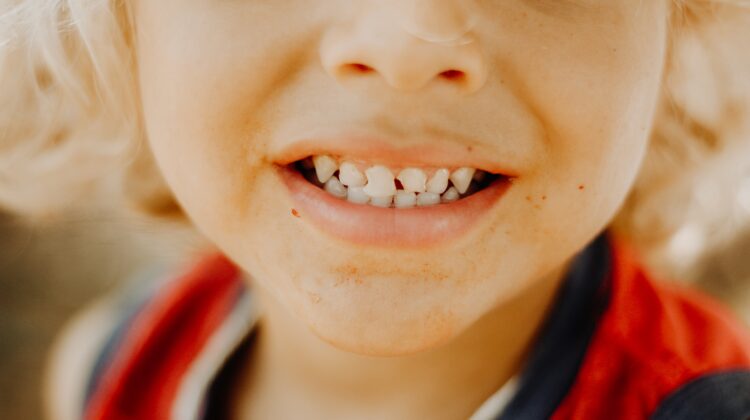
A chipped, cracked, or broken tooth is often not considered a dental problem as long as the child is not experiencing any pain. However, cracks can cause severe pain later on when bacteria come in contact with the soft tissues inside.
That said, the importance of routine dental care for kids cannot be overstated. Teeth that get knocked out or become loose can also become a choking hazard.
Common Causes of Chipped, Cracked, or Knocked-Out Tooth
A chipped, cracked, or knocked-out tooth can be attributed to the following:
Trauma
There’s no denying children are innately playful. Unfortunately, their hand and feet coordination is not that developed yet. This can mean they are more prone to trauma brought about by fights, sports, falling, biting on hard objects/foods, accidents, etc.
Biting down hard
Aside from being playful, children are more carefree compared to adults. While the jaws and teeth have a sensory mechanism that hinders people from biting too hard, sometimes it can fail and teeth can break, crack, or chip in the process.
Dental caries
Dental caries are prevalent in children. When not attended to accordingly, it can weaken the tooth and cause it to chip or crack. Many parents often realize too late that the chipped or cracked tooth is caused by dental caries left unattended.
Often, these types of cavities can be detected through X-rays or radiographs. Filling or restoring the teeth can help ensure it does not break, and the child will not lose the tooth.
Aside from causing chips, cracks, and fractures, the injuries mentioned may also cause teeth avulsion (otherwise known as knocking out of the teeth), concussion of the nerves, vessels, tooth socket, or fracture of the jawbones.
If your child experiences any of the scenarios mentioned above, visiting the dentist right away is recommended. The dentist can check what the child is dealing with and can resolve the issue before it escalates.
Also, in some instances, even if the child feels no pain, it is important that problems of those nature are taken care of right away. Otherwise, they might cause undesirable results later on. Fortunately, with professional care, any undesirable outcomes can be easily avoided.
Your child may or may not experience pain, depending on the severity of the damage. Whatever the case may be, it is ideal to visit the dentist so the condition can be diagnosed properly. Any damage that might not be visible to the naked eye can also be treated before it complicates.
What to Do If Your Child Has a Chipped, Cracked, or Knocked-Out Tooth
Knocked-Out or Avulsed Tooth
When a tooth is knocked out or avulsed, immediate and emergency care is crucial. For children over ten years of age, it is recommended that the tooth be washed gently. To minimize bleeding and stabilize the tooth, bite on a clean gauge gently or a wet tea bag until you get in the dentist’s office.
It is also recommended that the knocked-out tooth is not brushed. Rubbing the tooth roots is also not advised. As much as possible, visit the dentist within two hours. If you wait longer, there is a lesser chance of the tooth integrating back into the jawbone.
Broken, Fractured, or Chipped Tooth
Tooth chips can be major or minor. At times, it can also involve the nerves or vessels of the tooth. In the latter, placing a small white filling on the tooth or rounding off the sharp edges can help ensure the bacteria do not infiltrate the tooth and cause damage to the pulp.
If the fracture or chip is massive, root canal therapy may be recommended. The procedure involves the removal of the vessels and nerves inside the tooth. Filling material is then placed to restore the broken or fractured part.
A tooth that is restored through root canal therapy will discolor over time. That said, a crown or veneer may be required. As a general rule of thumb, significant fractures should be given immediate attention.
Otherwise, it can impact the tooth’s longevity significantly. If the tooth is badly broken down to the point that it cannot be restored anymore, taking the tooth out and maintaining the space is considered ideal.
While replacing the implant immediately through bridges, dental implants, etc. is an option for adults, it is not possible for children since their teeth are not entirely developed yet until they are 18 years old.
Typically, in similar scenarios, a temporary prosthesis is placed. The prosthesis may be changed now and then. The primary function of the prosthesis is to maintain the space for a future implant or bridge.
Dislodged or Luxated Tooth
When an injury occurs, teeth may be pushed out of its socket or to one side. In similar cases, the teeth need to be stabilized and repositioned as soon as possible. If the tooth is permanent, a root canal treatment may be recommended.
If the dislodged tooth is still developing, a root canal is not necessary. The stem cells will allow the tooth’s roots to complete the formation and allow the pulp to heal. If the tooth is dislodged or luxated, consultation and examination are considered crucial.
Final Thoughts
Regardless if the dental injury is minor or significant, consider visiting your dentist a must. Once treatment for the dental injury has been provided, it is also crucial that you adhere to the follow-up visits your dentist requires. Follow-up visits will allow dentists to check if everything is healing accordingly.
Nice Post